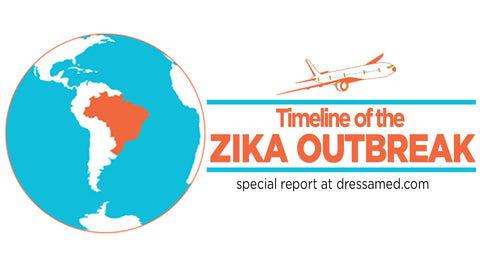Report and Illustration by Rachel Wong
The Zika virus was first discovered in 1947 in the Zika Forests of Uganda.
It spreads through mosquito bites, pregnancy, sex, and blood transfusion. It’s important to take simple precautions to prevent spreading the disease. Prevention of this disease include, wearing long-sleeved shirts and treating clothing with permethrin, and insect repellent. Also, keeping the home mosquito free with screen doors, and preventing the sexual transmission of Zika by using condoms or not having sex. Zika spreads through any sexual contact. If infected, it is important to get plenty of rest, drink fluids to prevent dehydration, and to take medications recommended by your doctor.

Symptoms
The known symptoms caused by Zika include fever, rash, joint pain, muscle pain, red eyes and vomiting. Symptoms can last for several days to a week, depending on the individual. Those infected typically do not get sick enough to have to go to the hospital. Consequently, it’s rare to die from Zika. Once infected by this disease, individuals are not likely to get future infections.
However, Zika has the potential to be risky for some, especially pregnant woman. Exposure to the virus during pregnancy can lead to a birth defect in the brain known as microcephaly and other severe fetal brain defects. Infants and fetuses can have abnormalities in the eyes, hearing deficits, and impaired growth. Additionally, there’s been an increased amount of reports of Guillain-Barre syndrome. The syndrome is an uncommon sickness of the nervous system. It causes muscle weakness, loss of reflexes, and numbness or tingling in parts of your body.
What’s Next?
The Zika outbreak has shown an increasing presence in today’s recent events. With the upcoming Olympics in Rio de Janerio, many are being cautious of this disease and taking necessary steps to prevent Zika from spreading. More than 500,000 people will be traveling to Rio de Janerio for the summer Olympics.
A vaccine for Zika is not available yet to the general public.


